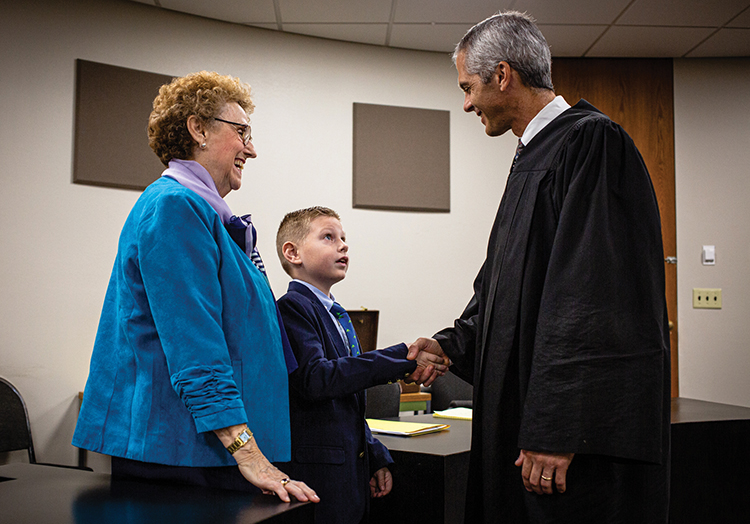When grandparents stand in the gap

When parents become unavailable to care for their children—whether through addiction, incarceration, or some other tragic circumstance—very often the children’s grandparents or other relatives absorb the children into their households. This may happen formally through CHINS, guardianship, or custody proceedings, but it often happens informally, with no court involvement at all. Those families are, in their view, simply doing what families do—taking care of the children.
For many, though they take it on willingly, the caregiving role presents hardships. These struggles may include the financial burden of feeding, clothing, and educating one or more children, but may also include more specialized needs such as mental health care, special education, grief and loss, and the caregivers’ sacrifice of their own previously contemplated pursuits. When a child shows up in need, the caregiver’s own needs typically move to the back burner, and that takes a toll.hen parents become unavailable to care for their children—whether through addiction, incarceration, or some other tragic circumstance—very often the children’s grandparents or other relatives absorb the children into their households. This may happen formally through CHINS, guardianship, or custody proceedings, but it often happens informally, with no court involvement at all. Those families are, in their view, simply doing what families do—taking care of the children.
At the July 2019 meeting of the Commission on Improving the Status of Children in Indiana, Representative Vanessa Summers raised this question: what can the Children’s Commission do to help these families? With the benefit of having all three branches of state government at the commission table, a plan began to take shape. The commission would call for a presentation from the Department of Child Services on its current programming for kinship caregivers, and would then determine what gaps the commission and its task force volunteers could help fill. In August 2019, the commission heard a presentation on DCS’s new, federally-funded Kinship Navigator program. The program seeks to provide enhanced, hands-on support to the kinship caregivers who take placement of about half of DCS’s wards, while also providing an online resource hub for the even greater number of kin caregivers who are not involved with DCS. At the same meeting, the commission adopted a new objective for its strategic plan to identify barriers and recommend ways to support kinship caregivers, including those whose children are not involved with DCS.
The commission’s new kinship care subcommittee, led by Sharon Pierce, CEO of The Villages, includes representatives from legal services, area agencies on aging, the Department of Child Services, and other stakeholders. At its first meeting, the group quickly identified a core legal need for kinship caregivers: guardianship of the children in their care. Because so many families take in their young relatives informally, those caregivers often find themselves without the legal standing to enroll children in school or health insurance, get needed medical or mental health care, or make a myriad of other decisions impacting the child’s well-being and
the family’s ability to function together.
Knowing that many families lack the resources to afford an attorney, the subcommittee first discussed pro bono legal resources available to these families. The Coalition for Court Access—a group that was created by Supreme Court order on May 17, 2016 to provide a focused and comprehensive organizational structure for Indiana’s civil legal aid programs—was alerted to the needs of kinship families. The subcommittee formally requested, and on December 18, 2019, the Children’s Commission endorsed, a plan to work with the Coalition for Court Access to develop and make available guardianship forms and instructions. Once that process is complete, all parties at the commission table will then work to disseminate to kinship caregivers information about the pro bono legal services and self-help forms available at indianalegalhelp.org.
 For more information, please contact the author at 317-232-1945 or
For more information, please contact the author at 317-232-1945 or